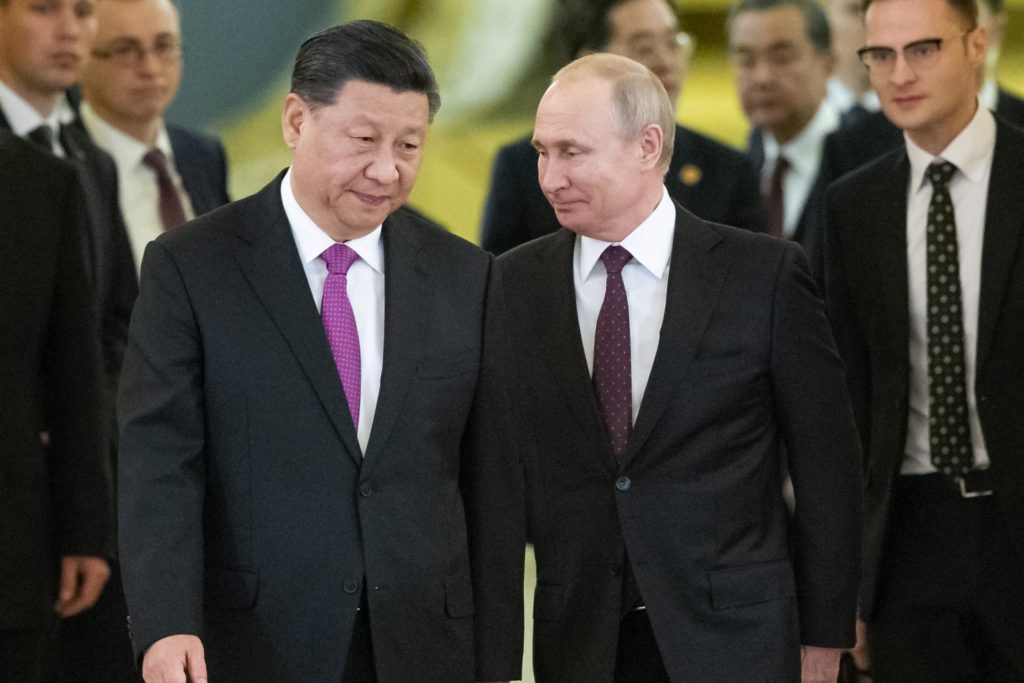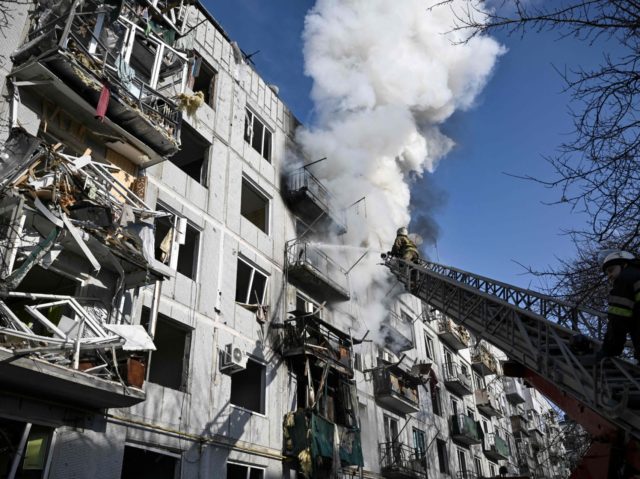China’s state-run Global Times — house organ of the world’s leading practitioner of debt-trap colonialism — warned Ukrainian President Volodymyr Zelensky on Tuesday that Washington is trying to enslave his country with military debts it can never repay.
The Biden administration’s $33 billion aid bill for Ukraine has plenty of sincere domestic opposition, but the Global Times did not bother repeating any of their criticisms. Instead, it took the especially noxious position of sneering that America ought to be spending that money on coronavirus prevention “as the Covid-19 [Chinese coronavirus] cases rise in the U.S. and it’s predicted the U.S. could potentially see 100 million Covid-19 infections this fall and winter.”
Prioritizing Ukrainian defense over defense against the virus China unleashed upon the world supposedly proves “the U.S. doesn’t care about American lives, nor will it take Ukrainian lives into account,” as it uses Ukrainian grunts to fight a proxy war against Russia.
Breezing past the question of precisely why the Ukrainians need all those weapons, and what the Russians would do to them if they lacked the means to defend themselves, the Global Times tried turning the debt-trap criticism of China’s Belt and Road Initiative (BRI) into an indictment of American military assistance to Ukraine:
There is no free lunch in the world. More US weapons have caused more Ukrainians to die. Worse, the Ukraine Democracy Defense Lend-Lease Act of 2022, which was signed into law by Biden, would drag Ukraine into a debt trap, turning the war-torn country into a new colony of the US. The act allows the US to use the military lend-lease program to speed up the transfer of weapons, military equipment, medicine and food to Ukraine. It is anticipated that the recipient country will have to pay later.
“It will become a serious shackle on Ukraine. Ukraine will have to pay both the principal and interest for the various weapons and equipment it is to receive from the US in the future. The US is a businessman. It won’t do business that will bring losses to itself,” military expert Song Zhongping commented.
The lend-lease program is not a cheap one, and America’s evil intention is obvious. Support Ukraine to fight to the last drop of Ukrainian blood by providing them so-called military aid, then ask future generations of Ukrainians to pay for all the ammunition, equipment and food that the US will have provided.
The Global Times predicted Ukraine will be “dragged into a quagmire of poverty, backwardness and debt with the U.S. continuously pouring in more weapons and thwarting efforts for a peaceful resolution.”
China has yet to condemn Russia’s brutal invasion of Ukraine or the war crimes Russian troops have been accused of perpetrating against Ukrainian civilians.

In this June 5, 2019, file photo, Russian President Vladimir Putin, center right, and Chinese President Xi Jinping, center left, enter a hall for talks in the Kremlin in Moscow, Russia. (AP Photo/Alexander Zemlianichenko)
The notion that U.S. military aid to Ukraine is part of some diabolical scheme to conquer and plunder the Ukrainians by forcing them to pay for bullets sounds like a weak echo of the hoary “blood for oil” criticism of all those nation-building interventions that never seemed to end with America taking anyone’s oil.
The history of recent American foreign policy offers very little evidence that its architects were seriously thinking about balancing the books, let alone turning a net profit for the United States as a whole on the endeavor. Contrary to “military expert” Song Zhongping’s feverish ruminations, it is difficult to point to an American intervention that did not “bring losses to itself.”
China, on the other hand, does have an extensive recent history of getting Third World nations hooked on unsustainable debt, with loans they can never repay for “infrastructure” that never generates a profit, so the Chinese Communist Party can expand its political and military influence.
Many of these BRI projects are approved by local leaders who are, to put it delicately, not overly concerned about how their successors will go about paying the Chinese debts they racked up.
China has been working to push its debt traps into Europe, an effort greatly complicated by Russia’s invasion of Ukraine. Ukraine became a BRI “partner” several years ago and signed an infrastructure deal with China in June 2021, pushed deeper into China’s orbit by the Biden administration’s refusal to oppose Russia’s Nord Stream 2 gas pipeline.
Zelensky’s administration has been reluctant to go all-in on Belt and Road, despite its strong desire for more foreign investment in Ukraine. In addition to being palpably disappointed with China’s refusal to condemn the Russian invasion or use its influence with Moscow to end the war, the Ukrainians were stung by China’s aggressive moves to take over fabled aeronautics company Motor Sich – an effort Zelensky rebuked with sanctions against an important Chinese company in February 2021.

COMMENTS
Please let us know if you're having issues with commenting.